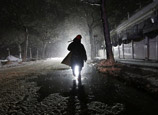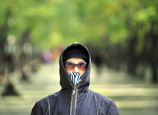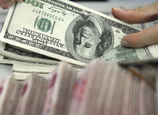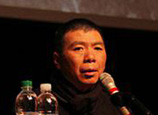
"For a capital city with a large population, it means little to just focus on the average index," said Tang.
"Beijing has lots of rich people, like pop stars, entrepreneurs and also government officials, who can raise the average statistics," he said.
There is a big gap between rich and poor, and rural and poor residents do not have access to the city's good medical and educational resources, he said.
Meanwhile, the city's traffic gridlock, terrible environment and also insufficient social security also need to be further improved, according to Tang.
The China Institute of City Competitiveness announced on its website their "happiness index" city list in July, which ranked Beijing as the 96th among the total 100 cities surveyed in China.
Li Na, a resident from Henan Province who sells ceramic tiles at Sihui construction materials market, Chaoyang district, said that as a migrant worker, her life is tough in the capital.
"My 5-year-old son attends a migrant school and writes his homework on the tiles in the store, and I can't afford to buy him toys or take him to the entertainment parks like other Beijing children," Li said.
For countries in the highest category of the HDI rankings in 2011, Barbados is the lowest with 0.818, and Norway is the first with 0.975. China's HDI is 0.687, ranked 101 out of 187 countries, according to the UN's Human Development Report on its website Monday.



















![]()
